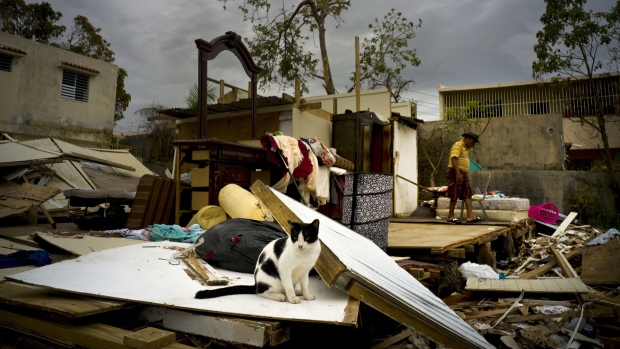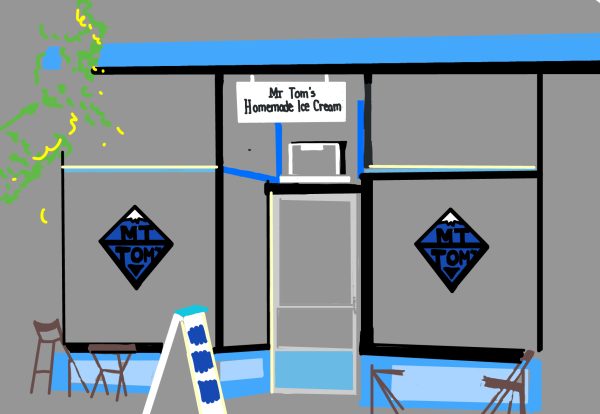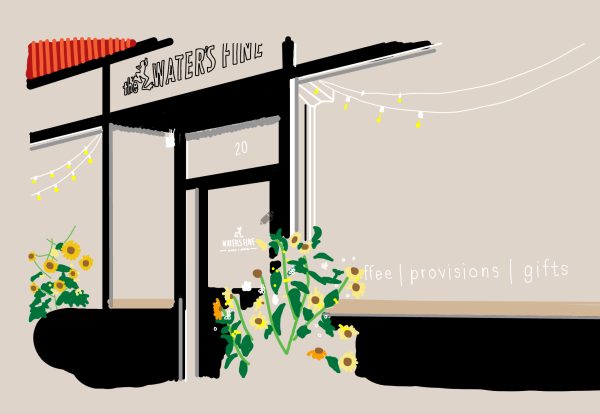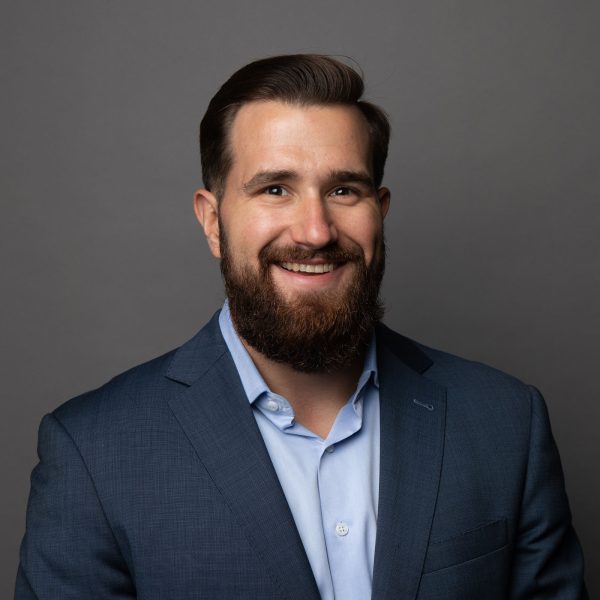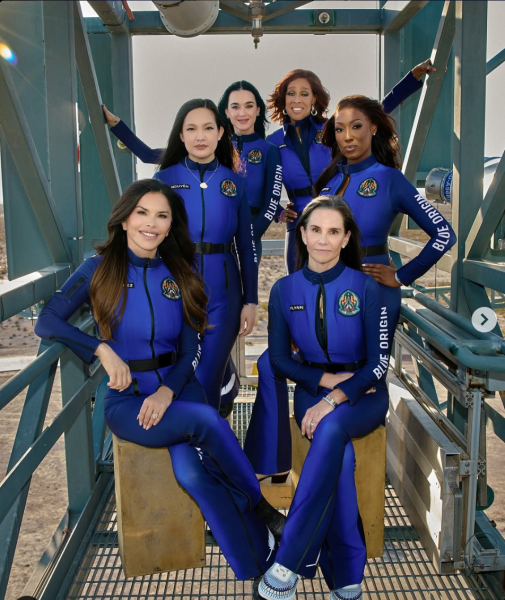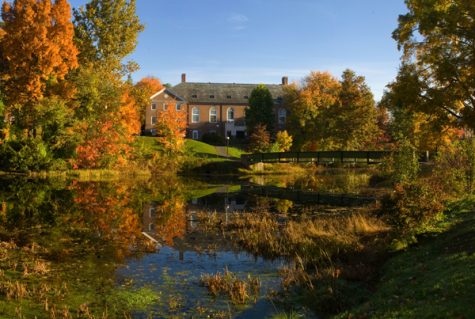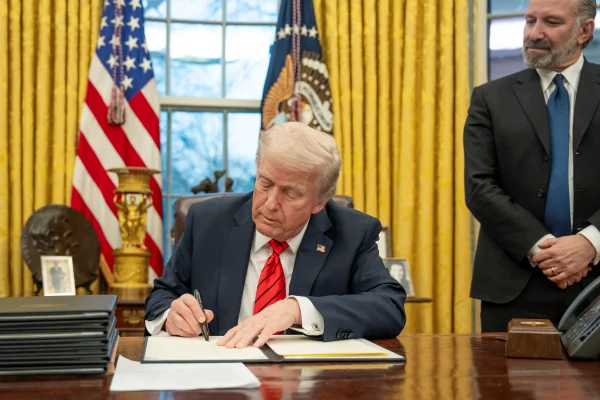What’s Really Happening in Puerto Rico
Puerto Rico, the small island south of the United States, was struck with two recent hurricanes. The first, Hurricane Irma, devastated the island on September 5. The second, Hurricane Maria on September 20, did immense damage as well. Every part of the island has been affected.
The US territory thrives and lives off of tourism. Now that the island is nowhere near being back to normal, the main source of income has come to a halt.
However, these disasters have revealed the true colors and resiliency of many Puerto Ricans. Brave citizens have helped by removing massive amounts of debris and checking on their neighbors. CVS stores across the entire island opened their doors and supplied food and water for the abundance of stray dogs that probably wouldn’t have survived.
The Washington Post said, “everything collapsed simultaneously. The devastation happened in an instant. Even the disaster managers, the professionals in charge of responding to hurricanes, were forced to evacuate the buildings where they had sheltered during the powerful storm.”
The Willistonian spoke with Tanairí García, who currently resides in Puerto Rico.
“The island was affected by not just the storm, but deforestation.” She said life has been difficult with “electricity and water gone.” [Ed note: Garcia is the author’s cousin].
“The family and I are adjusting to just the fact of not having electricity and having to find water and keeping hydrated and cool from the heat,” Garcia added. “We’re adjusting little by little being used to the new lifestyle.”
Tanairí’s mom, Maria Garcia, has been sleeping on the roof their house because it’s been too hot without electricity to power the air conditioner. Tanairí’s infant daughter, Gianna, has been wearing only diapers because it’s been too hot to wear clothing.
“I feel like both the island and the people are not doing well at all,” said Tanairí. “Not everyone has food and water and the basics to just survive.”
She offered some advice on how those outside of the disaster area can help.
“The way others can help us [are by] donating water food wipes, and there’s a lot of organizations to donate to and that aid will be sent to the island.”
Tanairí said she doesn’t feel like the US president has acted quickly enough to address the problem.
“I don’t think Trump has helped us out enough.”
However, Trump feels his trip to Puerto Rico, on October 3 “went great.” But what affect has Trump really had on Puerto Rico?
Misael (Jr.) Gonzalez, a chef at Sage Dining Hall at Williston, is originally from Puerto Rico.
He said Trump’s response to the hurricane was delayed. He said it was not terrible, but could have been better.
“At least the president took out the Jones Act, that makes it much easier to get the goods into Puerto Rico,” Gonzalez said. “He has helped but I think it has been a little but slower than we expected him to act.”
“Speaking neutrally, not involving any party, I think he should have acted faster than what he did for the island and less comments and more actions,” Gonzalez added. “I think It would have been much better for Puerto Rico and much better for him as a person. I say be humble, it doesn’t matter who you are or how much you’re worth, if you’re not a humble person you’re not worth anything.”
Gonzalez said the wrong resources are being sent to the island, and people are treating Puerto Rico like it’s a third-world country.
“Even though it’s not a third world country, sometimes when things get tough like that, not everyone acts the way they are supposed to act,” Gonzalez said. “They start stealing goods, people fight over stupid things like water and a bag of ice.”
“But on the other hand, you see Puerto Ricans have a strong will,” he said. “Even now we gather around with anything and we cook on wood with our maracas and a couple of congas and start singing like nothing has happened as far as I have seen.”
Gonzalez said Puerto Ricans are some of the most resilient people.
“Puerto Rico is an island with a lot of faith and we are very proud people,” he said. “So I think that they are starting to do fine even though all the situation and what they are going through.”
“A lot of people expect them to do worse than how they are doing even though the sky would be falling on us and were still going to fight.”
These powerful words from Gonzalez show the resilience of the island and beautiful people that reside there.
“Well emotionally I wish I was there, but instead of there being more people on the island, consuming the little things that they have, we should leave the people working to work. More people in the island coming for the curiosity is a problem.”
Jose Cadavedo Garcia who resides in Puerto Rico and Florida said, “The island was affected negatively. No electricity or water for days. To this day about 14% of the people have electricity and about 45% have water which are working with power generators. Catastrophic loss of home and personal belongings. The death count to this day is 43 and expecting more.”
The severity of the situation is growing stronger by the day. [Ed note: Garcia is the editor’s cousin].
Jose said “Imagine going to sleep with everything been as usual and waking up with a landscape that looks like the end of time. People are adjusting [by] basically taking one day at a time.” Jose stated.
“The waiting time for things like food, water, money, ice or fuel are little better for the urban areas like San Juan and Guaynabo. The lines the first two weeks and still in rural areas were exhausting. You basically had to take one day to get one thing.”
Jose continued, “For example, if you had three adults in a house, one should go to get fuel while the others go to another line because you could be in a line for 6 to 12 hours. The fuel line was the worst. You couldn’t be driving around for a better line because there wasn’t enough fuel and there was a curfew so you couldn’t be losing time.”
“Know people are relying more on each other dividing the load of work one cooks the others clean the streets or houses. Others take care of the kids etc. The people right know are improving their condition the best they can with the resources they find. A lot has to do with how easy can they reach the essentials. Quicker lines equal more time to plan, reconstruct and work.”
Jose noted the conditions.
“In some areas like my grandmother would describe it feels like we got blasted to the 1930-1940’s. So, you have to improvise a lot and be creative.”
People have left the island in attempts to help themselves because they are left with no choice.
“Many have moved to the US with family and friends. The sick, elderly, mothers with their children and people that will not have work for a long time.”
Contrary to many people’s assumptions, Jose believes that President Trump is doing a good job responding to the crisis.
“If I assess the president’s performance, today I feel he has done a good job which will not be the same answer if you ask around the island. If you ask me how he did the first two weeks my answer is not good. The government had FEMA workers ready before Maria hit which were already there due to hurricane Irma’s a week before but not enough personnel for what was about to happen.”
Jose thinks that the local government is partially to blame.
“The problem was the slow response and extra support after. They claim the distance and water separation was the factor. But, the reality was a lack of preparation from the local government (specifically no communication with other regions) and from the mainland. It took them two weeks to really get the military and more personnel mobilized in order to address the seriousness of the situation.”
“It is hard to make an objective assessment of the situation if you don’t see the devastation and get to the remote areas then you get a better picture of how catastrophic the situation is.”
“You can help by keeping the conversation going because this recovery is going to take years. Going to your church and organize to get a private organization to charter a plane and fill it up with essentials. The private organizations are having better success getting their resources directly to the people.”
Jose concluded, “Also, debate in schools about the colonial status of Puerto Rico and what you guys can find as solutions. Because in order to start progressing in the island we need to address the political situation.”
Victoria Zingarelli is a senior from Longmeadow, Massachusetts. In her free time she enjoys singing and playing lacrosse.



